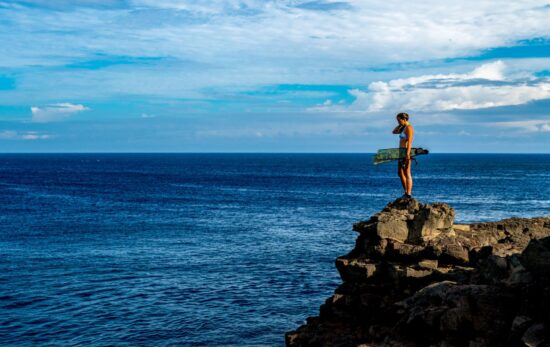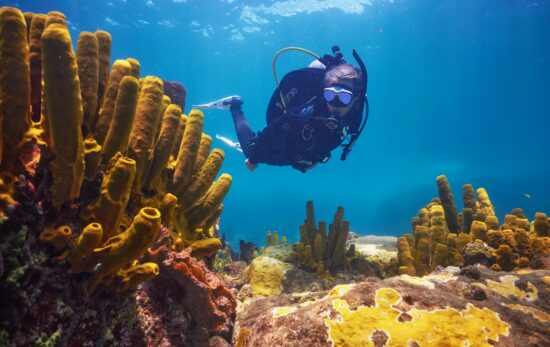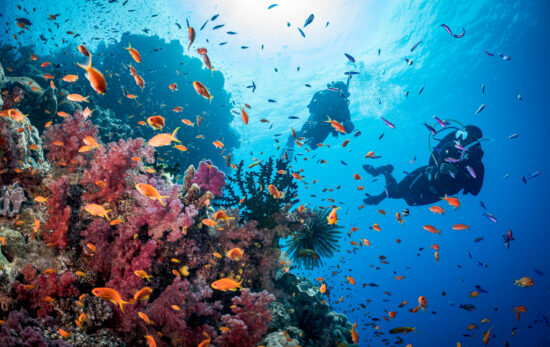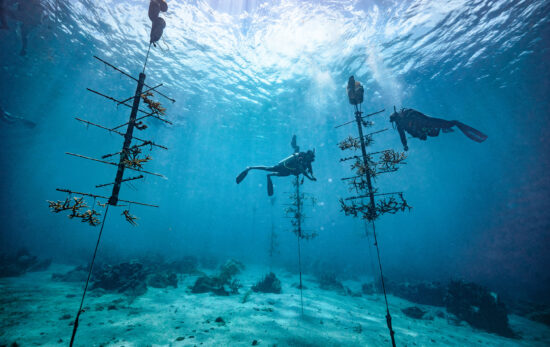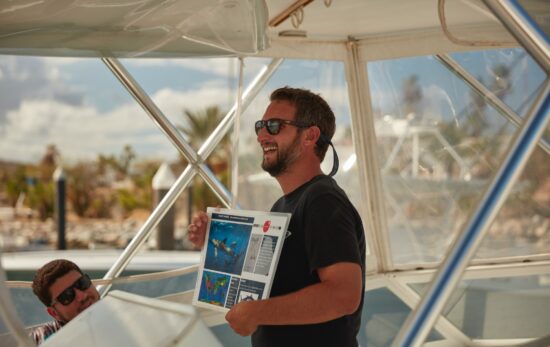The simple answer is: commercial divers get paid to work underwater and recreational divers dive for fun. It’s a bit like driving an 18-wheel truck versus taking a scenic drive on holiday.
Does that mean professional divers like scuba instructors and divemasters are commercial divers? Good question. Even though PADI® Pros get paid to dive, they are not considered commercial divers in most countries.
As the name suggests, commercial divers do things related to commerce such as: welding, salvage and maintaining underwater infrastructure. They often dive in rough conditions (strong currents, extreme depths, bad visibility) and stay down for a few hours. Compare this to a recreational dive, which should never exceed 40 m/130 ft.
Commercial divers:
- Wear specialized equipment
- Receive different training
- Dive places recreational divers should never go
What is Commercial Diving?
Commercial diving is a broad term that describes a variety of occupations. Some commercial divers work offshore on oil rigs, while others dive in local lakes and rivers. Here are some of the most common commercial diving jobs:
- Drinking Water Assessment
- HAZMAT: Diving in polluted water
- Inspection: Checking underwater cables, pipelines or bridge pylons for signs of damage
- Public Safety Diving
- Salvage: Recovering items or entire vessels
- Underwater Construction and Maintenance: Including bridges, dams and other infrastructure
- Underwater Demolition
As mentioned above, commercial divers use different equipment than recreational divers. Many don’t even wear scuba tanks. Some dive with rebreathers, but most get their breathing gas from a surface-supplied breathing apparatus.
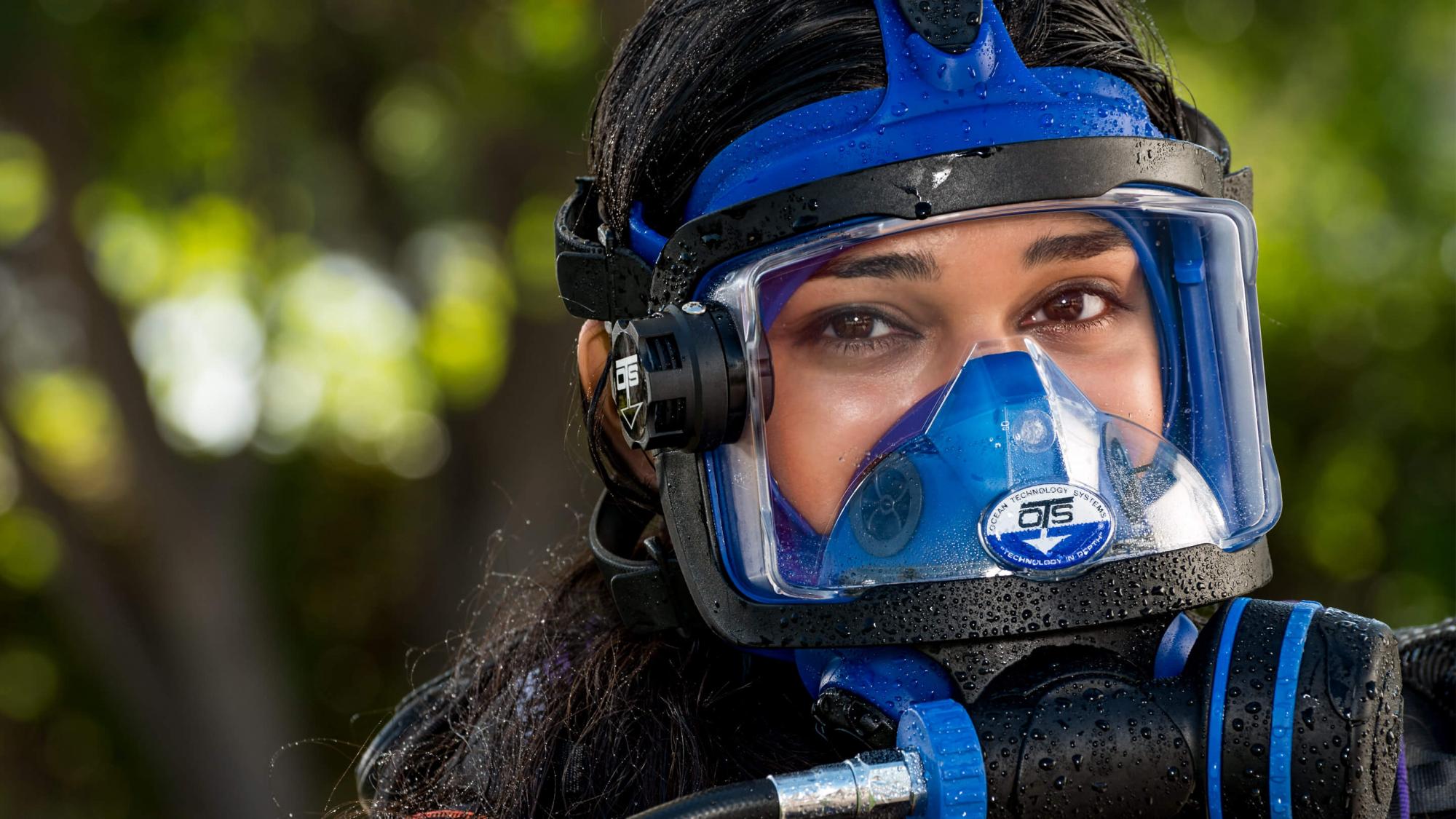
The majority of commercial divers wear some type of full face mask with an integrated device that allows them to communicate with other divers and/or a team at the surface. Depending on the job and the conditions, they may wear a mask that covers their entire face but leaves the top and back of their head exposed OR a helmet that covers their entire head. This is sometimes called hard hat diving.
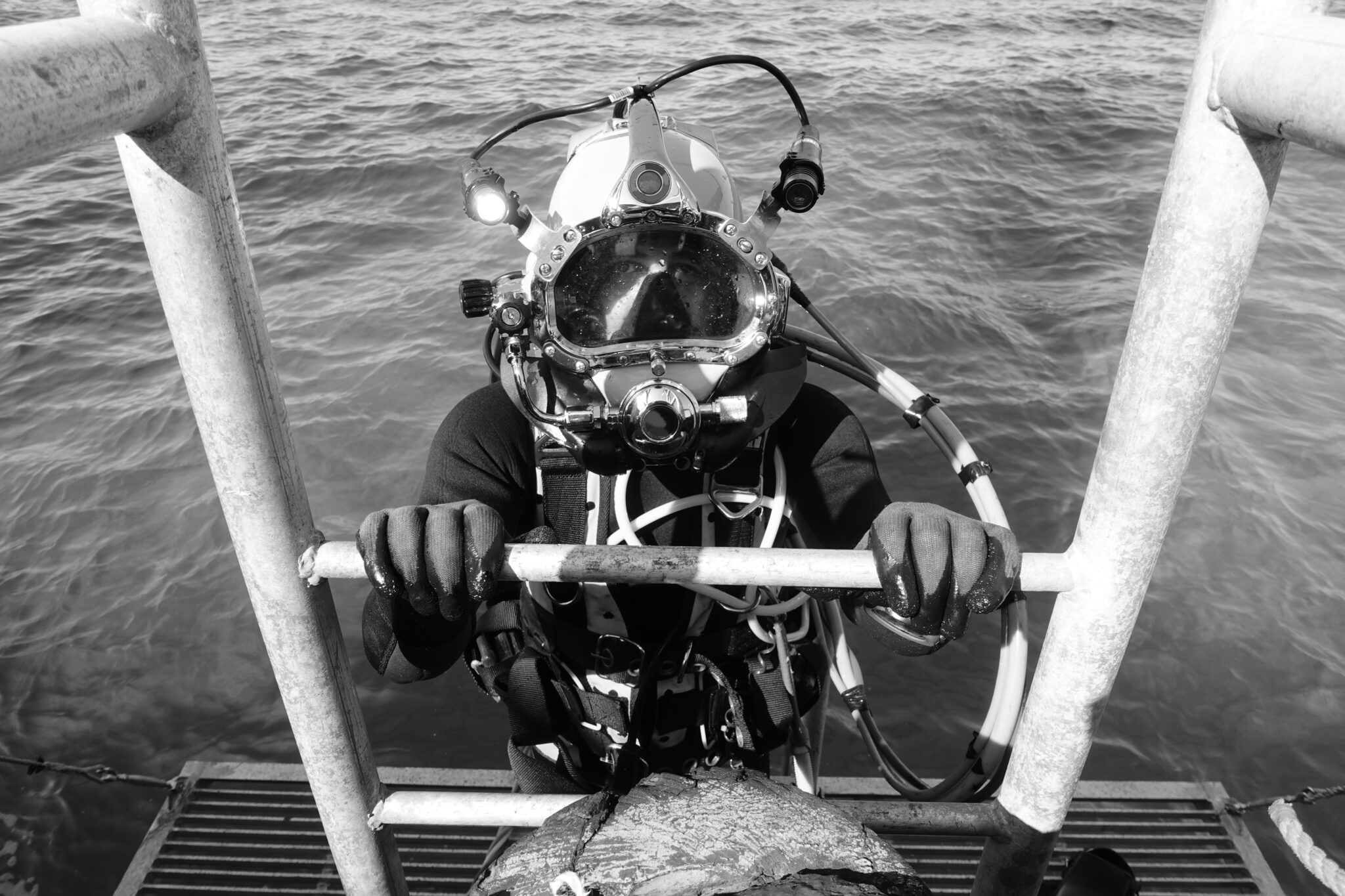
Commercial divers often work long shifts in extreme conditions. Because of this, commercial diving can be among the most high-paying jobs for scuba divers.
Saturation Diving
Some commercial divers spend weeks underwater using a technique known as saturation diving, often abbreviated to “sat diving.” They live inside a pressurized chamber so they can work at extreme depths. The video below includes interviews with saturation divers working at 180 m/590 ft.
Commercial Diving vs. Technical Diving
The line between commercial diving and technical diving can be blurry. Both commercial and technical divers stay underwater for extended periods and dive below the recreational limit. They may also use similar equipment, such as rebreathers and full face masks. Lastly, both commercial and technical divers complete specialized training to prepare for diving in more challenging environments.
The difference between these two types of diving comes down to:
- Technical divers explore for fun and choose where they want to dive
- Commercial divers get paid and don’t choose where they dive
Interested in a Commercial Scuba Diving Career?
Learn more about what it takes to become a commercial diver. We also have a few interviews with related scuba diving careers, including:
- A Limnologist
- An EPA Diver (Environmental Protection Agency)
- A Public Safety Diver
Ready To Become a Technical Diver?
Has learning about commercial diving inspired you to dive deeper and stay down longer? If so, then it might be time to become a PADI-certified technical diver. Click below to explore PADI’s technical diving courses and discover what it takes to get started.
Related Reading:
- Top 13 Scuba Diving Jobs
- 5 Ways Becoming a PADI Dive Instructor Benefits You in the Real World
- What to Expect When Shifting to an Ocean-Focused Career
- A Career That Matters: Environmental Jobs for Scuba Divers
- 5 Signs You Might Be a Great Dive Instructor
- What’s the Difference Between Technical Diving and Recreational Diving?

